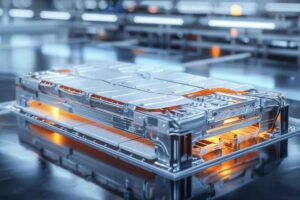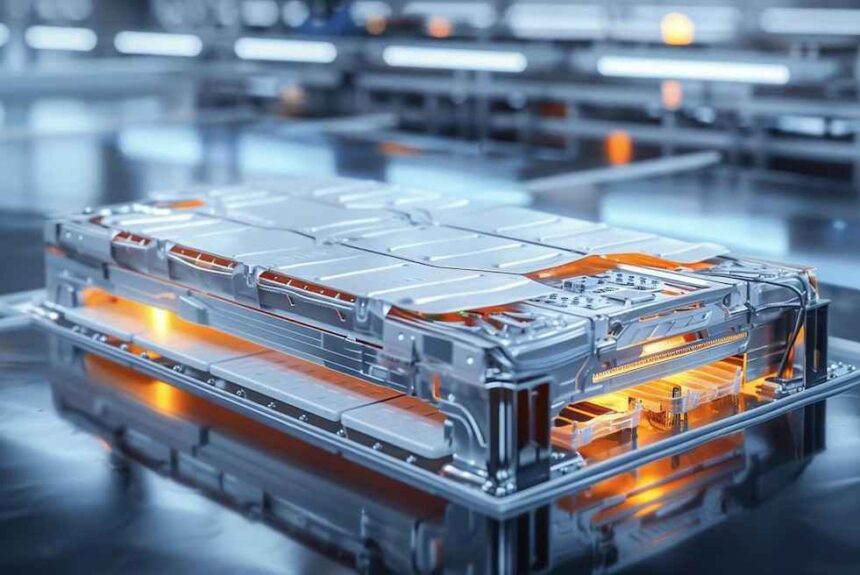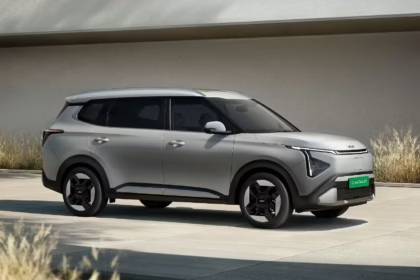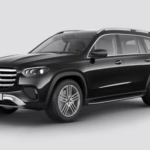India’s EV market is poised for a steep climb in the future, with people becoming more aware of the impact of their environmental and government policies pushing for it. With increasing buoyancy in sales of electric vehicles, the importance of improving its battery storage technology cannot be overemphasized.
- 10 Top Ev Battery Manufacturing Companies
- Amara Raja Batteries
- Exide Industries
- TDSG (Toshiba-Denso-Suzuki Gigafactory)
- Tata Chemicals
- Luminous Power Technologies
- Okaya Power Group
- HBL Power Systems
- Panasonic India
- Bharat Heavy Electricals Limited (BHEL)
- Epsilon Advanced Materials
- The Future of EV Battery Manufacturing in India
- Conclusion
- FAQs
At the heart of this shift are the ev battery manufacturing companies, which produce the critical components that power electric vehicles: batteries. In particular, lithium-ion batteries, which are characterized by their high energy density and long cycle length, are at the core of the transition to EVs.
This article will focus on feeding its readers with information about the 10 top ev battery manufacturers companies currently operational in India that strive to support India’s EV revolution through established technology, scalability, and collaborations. These companies that make ev batteries are not only contributing to India’s EV market but also have important roles in the energy transition.
10 Top Ev Battery Manufacturing Companies

Headquarters: Tirupati, Andhra Pradesh
Established: 1985
Amara Raja Batteries Ltd is one of the largest ev battery manufacturing companies in India, even though the company’s product brand is Amaron. Originally a lead-acid Battery manufacturer, Amara Raja is getting ready for the changing market by actively incorporating Lithium Ion batteries. The company has planned a ₹9,500 crore Gigafactory in Telangana Designed for Lithium-ion cells and battery packs for electric vehicles.
Some of the recent undertakings include in-house manufacturing of vehicles with innovative high lithium-ion battery density Nickel Manganese Cobalt (NMC) and Lithium Iron Phosphate (LFP) battery cells with partners such as Ather Energy and Piaggio India. These cells are to serve both the domestic and export markets and prop up Amara Raja as a critical player in the EV Battery Manufacturing market.
Headquarters: Kolkata
Established: 1947
Exide Industries has been in the production of lead-acid batteries for many years now. However, due to realizing the importance of highly potent batteries in EVs, Exide has entered into producing lithium-ion batteries. In collaboration with its Swiss-based associate Leclanche S.A, Exide has set up a fully-fledged facility for lithium-ion transport and industrial battery production under the brand Nexcharge in Gujarat.
Nexcharge has its plant in Prantij, Gujarat, where modern automation is installed, and the formats of battery packs that can be constructed are cylindrical, pouch, and prismatic. It is also setting up a lithium-ion cell manufacturing plant in Bengaluru, which is targeted to be operational by the end of FY25.
Headquarters: Ahmedabad
Established: 2017
TDSG is a formidable automotive ev battery manufacturing joint venture of Toshiba, Denso, and Suzuki that manufactures lithium-ion batteries exclusive to Suzuki electric vehicles in India. This ev battery manufacturing company is special in lithium titanium oxide (LTO) batteries, which feature relatively short charging times and one of the longest lifespans.
The TDSG plant is a critical success in the Indian EV market as it supplies batteries to Suzuki’s Maruti and Gujarat facilities. Harvard stated that this factory, with an investment of $180 million, will have a significant role in ensuring the development of electric vehicle battery manufacturers in India.
Headquarters: Mumbai
Established: 1939
Tata Chemicals, the company belonging to Tata Group, is still young and is expected to pose a serious threat to the Lithium-ion battery industry in the future. The firm has lined up a lithium-ion battery plant in Gujarat, which it intends to commence in 2025. This plant is still in line with Tata’s broader plan for the electrification of the automobile division, Tata Motors.
Further, capital expenditure inefficient charging points by Tata Chemicals also supports its future strategy of owning EV charging stations. The plan to manufacture lithium-ion batteries would go a long way in reducing the cost of EVs in the Indian market, thanks to the economies of scale that Tata Motors seeks to attain as a way of achieving increased sales of electric vehicles in the coming five years to 2026 or a quarter of its sales portfolio.
Headquarters: Gurugram
Established: 1988
Luminous Power Technologies is very popular in energy solutions, including inverters, solar batteries, and industrial energy storage systems. In the EV segment, Luminous came up with lithium-ion battery solutions to power electric three-wheelers. The batteries featured in these are general performance batteries, which provide long mileage and require little or no maintenance at all.
Matter Energy has also collaborated with Luminous to design and131 integrate swappable batteries in electric motorcycles. This affiliation signifies a major leap towards designing flexible battery systems that may be utilized across multiple industries – electricity storage in homes and industries.
Headquarters: New Delhi
Established: 1988
Currently, Okaya Power is ranked among the leading ev battery manufacturing industries in India and among lithium-ion ev battery manufacturers. The company provides batteries for electric two-wheelers, three-wheelers, and energy storage. Okaya brand of lithium-ion batteries is characterized by their capacity to charge quickly and their durability cycles.
Okaya is also involved in electric vehicle charging in India, apart from batteries. They have over 500 EV charging station installations and have offered over 250 MWh BESS solutions across India.
Headquarters: Hyderabad
Established: 1977
HBL Power Systems Ltd. has a definitive place in the battery production industry and is perhaps one of the most highly developed electric car battery manufacturers of hi-tech batteries for different fields, including defense, telecom, electric vehicles, etc. HBL has advanced large-format Li-ion batteries that are essential power storage systems for fast charging of EVs and for balancing the grid load/energy storage.
The lithium-ion battery line, HBL, also contains an effective battery management system or BMS. The firm is also an electric drivetrains and motors manufacturer, to enable it to address all the electric vehicle solutions needs of the market.
Panasonic India
Headquarters: Gurgaon
Established: 1972
Lithium-ion batteries for EVs and energy storage have been Panasonic India’s key focus in recent years since it is a division of the global electronics company. Thus, the cylindrical lithium-ion ev battery manufacturing plant with a partner firm of Indian Oil Corporation in India is Panasonic’s plan for the electric two-wheelers and three-wheelers market future.
Panasonic has a marginal presence in India’s EV battery market as a ev battery manufacturer with local EV Battery Manufacturing capacity, which is also a forte of Panasonic.
Bharat Heavy Electricals Limited (BHEL)
Headquarters: New Delhi
Established: 1964
Another Indian utility manufacturing engineering business, Bharat Heavy Electricals Limited, has also ventured into the lithium-ion battery business with a specific interest in the large-scale storage market. The lithium-ion batteries that are currently being manufactured by BHEL are for electric buses and other large vehicle requirements where energy density and life cycle are vital.
Other than batteries for Electric Vehicles, BHEL is also committed to the installation of EV charges and offers a complete solution for EVs in India.
Headquarters: Mumbai
Established: 2020
Epsilon Advanced Materials is a comparatively new entrant in ev battery manufacturing companies located in India, and the company mainly caters to the anode materials required for lithium-ion batteries. Given the rise in the use of lithium-ion batteries, there is an emphasis on finding high-quality anode materials.
Epsilon also aims to be a strategic provider of battery materials and contracts with local and foreign ev battery manufacturers. The interest of the company in innovation research and development makes it a suitable player in the evolving market of electrified vehicles in India.
The Future of EV Battery Manufacturing in India
The manufacturing of batteries in India by ev car battery manufacturers is a clear testament to the encouragement of electric vehicle growth in the country. Some of the latest takeaways are strategic investments in cutting-edge battery technologies, domestic manufacturing capacities, partnerships, and policies.
India is all set to emerge as the leader in EV battery manufacturing globally. As these ev car battery companies expand their operations and generate one new energy storage form after another, the future of sustainable transportation in India looks bright.
Deep-rooted ev battery manufacturing companies and new-entrant companies like Epsilon and Panasonic are important in supporting the country’s ambitious goal of electric vehicle deployment. Instead of just providing the necessary energy services, these companies are contributing to India’s path of energy diversification and pushing the country towards a cleaner environment.
Conclusion
Being an emerging market, India is witnessing rapid growth of electric vehicles (EV), and therefore, top 10 ev battery manufacturers companies play an important role. Such companies are cutting-edge and working on the creation of improved battery technologies in the mentioned aspects.
Both huge original players and new startups also make India’s ev battery manufacturing landscape diverse to show the willingness of the country to embrace green energy. India has therefore embarked on a mission to promote battery production within the country.
Hence decreasing the imports, improving the economy, and combating climate change. Following continuous innovation within the industry, better innovations can be keenly anticipated to define the future of electrical mobility in India. Check out our extensive list of new cars launched in India to know more about electric vehicles and how the shift for a green planet has begun.
Disclaimer: The information given in this article has been designed to be informative. Nonetheless, to remain as relevant and effective as possible, we try our best to provide the most accurate and up-to-date information about the leading EV battery manufacturing companies in India.
FAQs
1. What is the division of EV batteries?
The three-vehicle batteries are lithium-ion, nickel-metal hydride (NiMH), and lead-acid batteries; lithium-ion is dominant in EVs.
2. What are the rationales of battery manufacture regarding EVs?
Battery manufacturing can be considered a critical point for making EVs because the battery serves as the source of power. Better performance, longer range, and faster charging periods are gained from quality batteries.
3. What Government policies for supporting the manufacturing of EV batteries in India are out there?
The Indian government has started many programs like the Faster Adoption and Manufacturing of Electric Vehicles (FAME) India scheme to encourage battery manufacturing and the EV market.
4. Which battery company is dominating the EV market in India?
Some of the key players in the Indian EV battery market are Tata Autocomp, Exide Industries, and Amara Raja Batteries, and they are slowly shifting depending on sales, technology, and partnership hierarchy.





